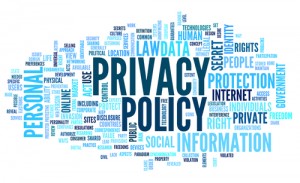 In response to the recent Ebola outbreak in West Africa and in light of patients being treated in several hospitals in the U.S., the HHS, OCR (OCR) recently issued a HIPAA Bulletin to remind us that HIPAA covered entities and business associates must maintain the privacy of protected health information (PHI) even in emergency situations (“Guidance”). According to the OCR, the Guidance serves as a reminder “that the protections of the [HIPAA] Privacy Rule are not set aside during an emergency.”
In response to the recent Ebola outbreak in West Africa and in light of patients being treated in several hospitals in the U.S., the HHS, OCR (OCR) recently issued a HIPAA Bulletin to remind us that HIPAA covered entities and business associates must maintain the privacy of protected health information (PHI) even in emergency situations (“Guidance”). According to the OCR, the Guidance serves as a reminder “that the protections of the [HIPAA] Privacy Rule are not set aside during an emergency.”
The OCR explains that the HIPAA Privacy Rule requires a balance between the protection of the privacy of PHI against the necessary uses and disclosures of such information “to treat a patient, to protect the nation’s public health, and for other critical purposes” during emergency situations. Although the OCR introduces no new requirements under the HIPAA Privacy Rule, the Guidance lays out the circumstances under which patient information may be shared in emergencies, such as for/due to:
- Disclosures to Family, Friends, and Others Involved in an Individual’s Care and for Notification
- Disclosures to the Media or Others Not Involved in the Care of the Patient/Notification
- Imminent Danger
- Public Health Activities (i.e., to a public health authority; at the direction of a public health authority, to a foreign government agency; and to persons at risk)
- Treatment
The OCR reminds us that most disclosures require covered entities to make “reasonable efforts to limit the information disclosed to that which is the ‘minimum necessary.’” Further, covered entities are also required to: (i) implement “reasonable” safeguards necessary to protect PHI from intentional/unintentional uses and disclosures that are impermissible under HIPAA; and (ii) continue to apply administrative, physical and technical safeguards to protect e-PHI under the HIPAA Security Rule.
Further, according to the OCR, under the Project Bioshield Act of 2004 and Section 1135(b)(7) of the Social Security Act, the Secretary of HHS may waive certain HIPAA Privacy Rule provisions during public health or other emergencies. Such limited waivers require both the President to declare an emergency or disaster and the Secretary of HHS to declare a public health emergency. Additional information regarding the limited waivers appears in the Guidance.
As Ebola remains an emergency of both national and international concern, it not surprising that federal agencies continue to publish updated Ebola guidance. This Guidance reminds all of us, especially covered entities and business associates, that even in emergency situations, patient privacy must be protected, unless the limited waiver is invoked, and if not, covered entities and business associates will face consequences for violating the HIPAA Privacy Rule. For additional information regarding the HIPAA Privacy Rule in the context of emergency situations, see the HHS website. Also see similar guidance (Bulletin and Bulletin published by HHS in 2005 in response to Hurricane Katrina.

Leave a Reply